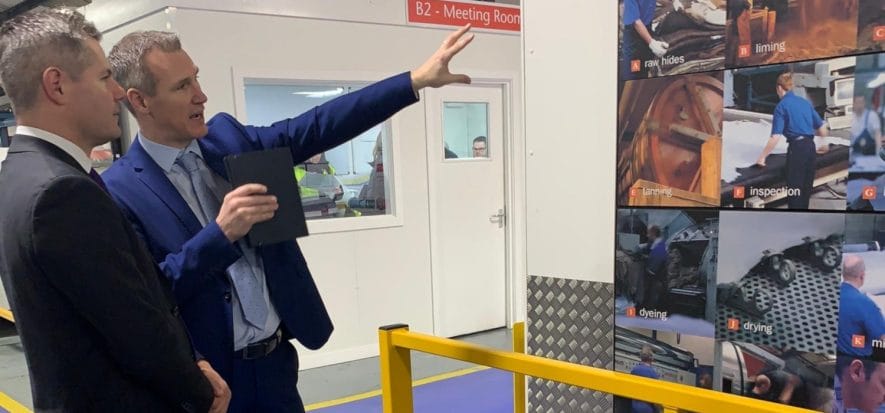With the implementation of Brexit, British luxury now has a certainty: eleven months of transition await it. It is the period during which the United Kingdom will remain within the EU’s economic jurisdiction. In the meantime, it will negotiate a new commercial agreement with Europe, but also with other countries, USA above all.
English luxury has a certainty
“The official Brexit is a relief – says Mary Alice Malone of Malone Souliers to Footwear News -. Now we just want to find out what we need to do and how to move forward”. The US newspaper also collected the opinion of Giuseppe Santoni, CEO of Santoni: “Everyone is very enthusiastic about Brexit – he says with reference to London department stores -. I am sure that an effective solution will be found”. Helen Brocklebank, CEO of Walpole, the British luxury association, is less optimistic: “There will be enormous post Brexit challenges, as luxury brands will have to adapt to both import and export”. Not just risks, Brocklebank acknowledges: “There will also be opportunities to make Britain the best place to grow a luxury brand”.
Waiting for tariffs
“The number one priority must be that of tariffs – says Adam Mansell, CEO of the UK Fashion and Textile Association, to Vogue Business -. The EU is by far the largest market for the UK, so having free access to that market is extremely important to us”. This is the comment by Thierry Andretta, CEO of Mulberry: “UK companies should not be obliged to pay tariffs on raw materials and components from the EU. If this does not happen, there will certainly be an impact on prices for our customers”.
Irish border
Brexit also questions people’s free circulation, for example between the United Kingdom and Northern Ireland. A dossier to the attention of the BFA-Bristish Footwear Association, which aims to represent the needs of its members to the Government: “How and how much does the circulation of UK-Northern Ireland goods and services weigh in your supply chain?” Asks BFA. The speech will then also be extended to relations with the EU.
Tanning insurance
The tanning world is also involved. On January 30, Derek Mackay, secretary for Finance, Economy and Labor of the Scottish government’s, visited Scottish Leather Group factory in Bridge of Weir (pictured). The Scottish group exports 80% of its products. During the visit, Mackay said: “It was good to hear that the company is taking steps to prepare for Brexit and build resilience to deal with potentially significant changes”.
Photos from Derek Mackay’s blog
Read also:
- Brexit, British fashion demands certainties: “The Government listen to us”
- Jaguar Land Rover to fire 500 redundant employees in England
- Seeking responses in London: gearing up for Lineapelle London











